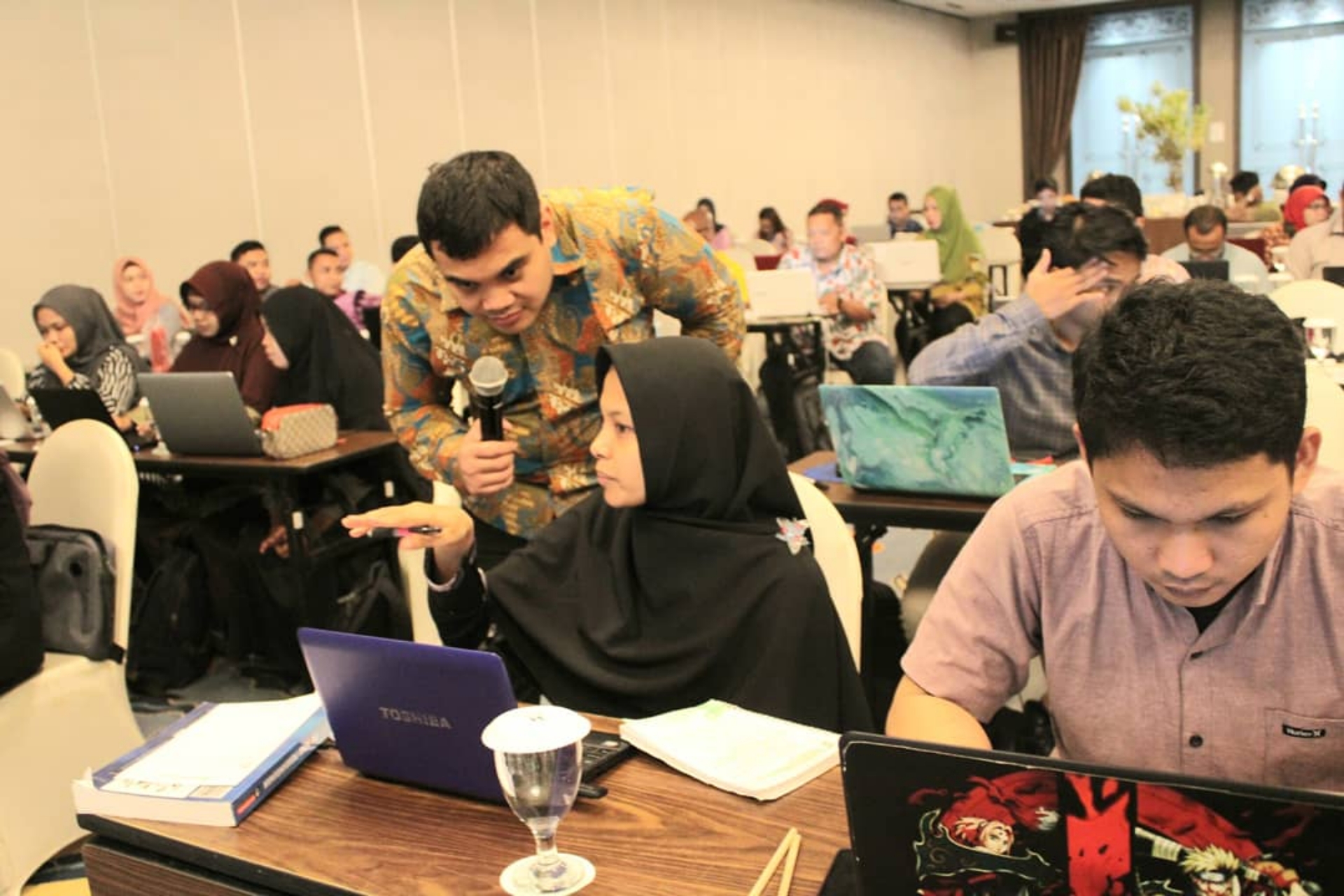
Students and Lecturers from Indonesia Universities Participates in STATA and IFLS Training Organized by FEB UNS
More than 100 students and lecturers from universities across Indonesia attended the Training on STATA and IFLS organized by FEB UNS Internationalization Team, on Wednesday, December4, 2019, in Swiss-Bellin, Solo. The event was opened by Dr. Izza Mafruhah, M.Si, the Vice Dean of Academic Affairs of the FEB UNS, and invites two speakers: Wahyoe Soedarmono, PhD, from Sampoerna University Jakarta and Yohanes Sondang Kunto, PhD, from Petra Christian University, Surabaya.
Opening his presentation, Dr. Wahyoe mentions that an article is accepted by a publisher or journal not because it is perfect, but because the article has minimum error, with a strong argument through a solid data analysis. He also shares his experience as an author and reviewer, mentioning that most of journal reviewers are simple, they only need to read the abstract of an article. “If the first two paragraph of an article is strong enough, it shows that the author is serious in writing the article. If the first two paragraph is ambiguous or not clear, it is enough for a reviewer to reject that article,” he explained.
Additionally, reviewer will assess the content, whether the table provided is clear enough or formatted appropriately, thus the reader can understand its content without further explanation by the author, and the story-line provided by author throughout the article should be consistent. From author point of view, Dr. Wahyoe mentions that in writing an article author should minimize the probability for a reviewer to reject the article. “If an author analyzes the data using EViews and they directly copying the analysis table result to the article, it will be automatically rejected by reviewers,” Wahyoe explains. Further, he explains on how to use STATA software to the participants.

Another speaker, Yohanes Sondang Kunto, PhD, explains about the Indonesian Family Life Surveys (IFLS). IFLS is a survey regarding the families’ domestic life in Indonesia, which has been conducted for several occasions. However, not all Provinces (Region) in Indonesia is covered in IFLS, only few Provinces in east Indonesia region is covered. There are many articles published in international journal that use IFLS data. However, in Indonesia, IFLS data is not yet widely implemented by students, researchers, or policy makers. Dr. Yohanes encourage the participants to use IFLS data, because of its richness and it can be explored further, in order to analyze the community phenomena in Indonesia, especially for the policy makers.
For the next day, Thursday, December 5th, the participants are encouraged to practice data analysis using STATA.
